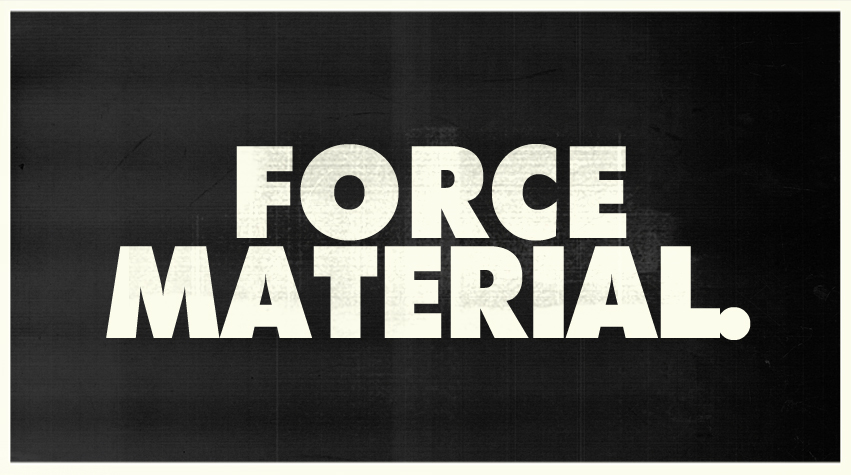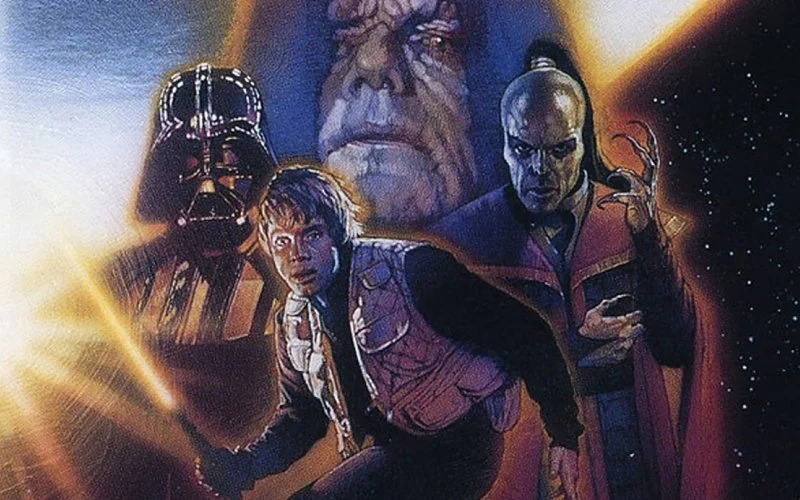George Lucas explains why you shouldn't digitally alter films
In 1988, George Lucas stood before Congress to speak out against the scourge sweeping through the film industry — the digital alteration of classic films.
In the 1980s, computerised film colorisation was a hot-button issue, as studios and media moguls were beginning to use digital techniques to add colour to black-and-white films, in a bid to make them more palatable to modern audiences.
Ted Turner, in particular, was a gung-ho advocate for the process, and announced that he was considering adding colour to Citizen Kane.
Film critics Roger Ebert and Gene Siskel devoted an entire episode of Siskel & Ebert to this worrying trend, which they dubbed 'Hollywood's New Vandalism'.
In 1988, a number of prominent filmmakers went before Congress to explain why it was necessary to introduce laws to prevent the alteration of classic films, including John Huston, Woody Allen, Jimmy Stewart — and George Lucas.
In light of, well, everything George Lucas has done since 1988, his speech — preserved by /Film — makes for interesting reading today.
Take it away, George...
My name is George Lucas. I am a writer, director, and producer of motion pictures and Chairman of the Board of Lucasfilm Ltd., a multi-faceted entertainment corporation.
I am not here today as a writer-director, or as a producer, or as the chairman of a corporation. I’ve come as a citizen of what I believe to be a great society that is in need of a moral anchor to help define and protect its intellectual and cultural heritage. It is not being protected.
The destruction of our film heritage, which is the focus of concern today, is only the tip of the iceberg. American law does not protect our painters, sculptors, recording artists, authors, or filmmakers from having their lifework distorted, and their reputation ruined.
If something is not done now to clearly state the moral rights of artists, current and future technologies will alter, mutilate, and destroy for future generations the subtle human truths and highest human feeling that talented individuals within our society have created.
A copyright is held in trust by its owner until it ultimately reverts to public domain. American works of art belong to the American public; they are part of our cultural history.
People who alter or destroy works of art and our cultural heritage for profit or as an exercise of power are barbarians, and if the laws of the United States continue to condone this behavior, history will surely classify us as a barbaric society.
The preservation of our cultural heritage may not seem to be as politically sensitive an issue as “when life begins” or “when it should be appropriately terminated,” but it is important because it goes to the heart of what sets mankind apart. Creative expression is at the core of our humanness. Art is a distinctly human endeavor. We must have respect for it if we are to have any respect for the human race.
These current defacements are just the beginning. Today, engineers with their computers can add color to black-and-white movies, change the soundtrack, speed up the pace, and add or subtract material to the philosophical tastes of the copyright holder.
Tomorrow, more advanced technology will be able to replace actors with “fresher faces,” or alter dialogue and change the movement of the actor’s lips to match. It will soon be possible to create a new “original” negative with whatever changes or alterations the copyright holder of the moment desires. The copyright holders, so far, have not been completely diligent in preserving the original negatives of films they control. In order to reconstruct old negatives, many archivists have had to go to Eastern bloc countries where American films have been better preserved.
In the future it will become even easier for old negatives to become lost and be “replaced” by new altered negatives. This would be a great loss to our society. Our cultural history must not be allowed to be rewritten.
There is nothing to stop American films, records, books, and paintings from being sold to a foreign entity or egotistical gangsters and having them change our cultural heritage to suit their personal taste.
I accuse the companies and groups, who say that American law is sufficient, of misleading the Congress and the People for their own economic self-interest.
““Our cultural history must not be allowed to be rewritten.””
I accuse the corporations, who oppose the moral rights of the artist, of being dishonest and insensitive to American cultural heritage and of being interested only in their quarterly bottom line, and not in the long-term interest of the Nation.
The public’s interest is ultimately dominant over all other interests. And the proof of that is that even a copyright law only permits the creators and their estate a limited amount of time to enjoy the economic fruits of that work.
There are those who say American law is sufficient. That’s an outrage! It’s not sufficient! If it were sufficient, why would I be here? Why would John Huston have been so studiously ignored when he protested the colorization of The Maltese Falcon? Why are films cut up and butchered?
Attention should be paid to this question of our soul, and not simply to accounting procedures. Attention should be paid to the interest of those who are yet unborn, who should be able to see this generation as it saw itself, and the past generation as it saw itself.
I hope you have the courage to lead America in acknowledging the importance of American art to the human race, and accord the proper protection for the creators of that art — as it is accorded them in much of the rest of the world communities.
The debate around the colorisation of films in the 1980s led to the introduction of the National Film Preservation Act of 1988, which established the National Film Registry, and prohibited any person "from knowingly distributing or exhibiting to the public a film that has been materially altered, or a black and white film that has been colorized and is included in the Registry, unless such films are labeled disclosing specified information".
As it happens, adding a disclaimer to a film's credits isn't all that hard, and the National Film Preservation Act has obviously done nothing to prevent Lucas tinkering with the Star Wars films over the years, adding new scenes, music, dialogue, special effects, and even new actors with each re-release.
(In fact, most fans know that Lucas has been tinkering with the original film ever since it opened in 1977, nine years before his speech to Congress, but the major changes really began with the Special Editions in 1997.)
In fairness to Lucas, he has made it clear that he sees a distinction between a copyright holder altering a work of art they did not create, and an artist's right to alter their own work. It's a point he's elaborated on a number of times, including in this interview in the American Society of Cinematographers magazine while promoting the Special Editions in 1997.
"There will only be one [version of the films]," he said. "And it won't be what I would call the 'rough cut', it'll be the 'final cut'. The other one will be some sort of interesting artifact that people will look at and say, 'There was an earlier draft of this'. The same thing happens with plays and earlier drafts of books.
"In essence, films never get finished, they get abandoned. At some point, you're dragged off the picture kicking and screaming while somebody says, 'Okay, it's done'. That isn't really the way it should work. Occasionally, [you can] go back and get your cut of the video out there, which I did on both American Graffiti and THX 1138; that's the place where it will live forever. So what ends up being important in my mind is what the DVD version is going to look like, because that's what everybody is going to remember. The other versions will disappear. Even the 35 million tapes of Star Wars out there won't last more than 30 or 40 years.
"A hundred years from now, the only version of the movie that anyone will remember will be the DVD version [of the Special Edition], and you'll be able to project it on a 20-foot-by-40-foot screen with perfect quality. I think it's the director's prerogative, not the studio's, to go back and reinvent a movie."
That doesn't completely reconcile Lucas' 1988 speech with his later actions — for instance, if our cultural history must not be allowed to be rewritten, and the public interest is what's really important, does it really matter who's doing the altering? — but it at least helps us understand where he's coming from.
The other possibility, of course, is that people are capable of simply changing their minds.
Still, it's hard not to think Lucas was displaying an incredible amount of self-awareness when he made the following comment in an interview on the 2004 DVD release of Star Wars.
"I'm not happy that corporations have taken over the film industry, but now I find myself being the head of a corporation, so there's a certain irony there," he said.
"I have become the very thing that I was trying to avoid. That is Darth Vader – he becomes the very thing he was trying to protect himself against."
Ted Turner never did end up adding colour to Citizen Kane, by the way. Before his death, Orson Welles made it clear that he didn't want that to happen, and Turner decided not to push ahead with his attempts to do so, fearing the Welles estate would ultimately block him.
Wouldn't it be ironic if the Disney corporation decided now to defy Lucas' wishes and release the original, unaltered cut of Star Wars?
Force Material is a podcast exploring the secrets and source material of Star Wars with hosts Rohan Williams and Baz McAlister. Listen and subscribe on iTunes, Spotify, iHeartRadio, TuneIn, Stitcher, PlayerFM and Castro; stay in touch with us on Facebook, Twitter and Instagram; and support the show by browsing our range of shirts, hoodies, kids apparel, mugs and more at TeePublic.







